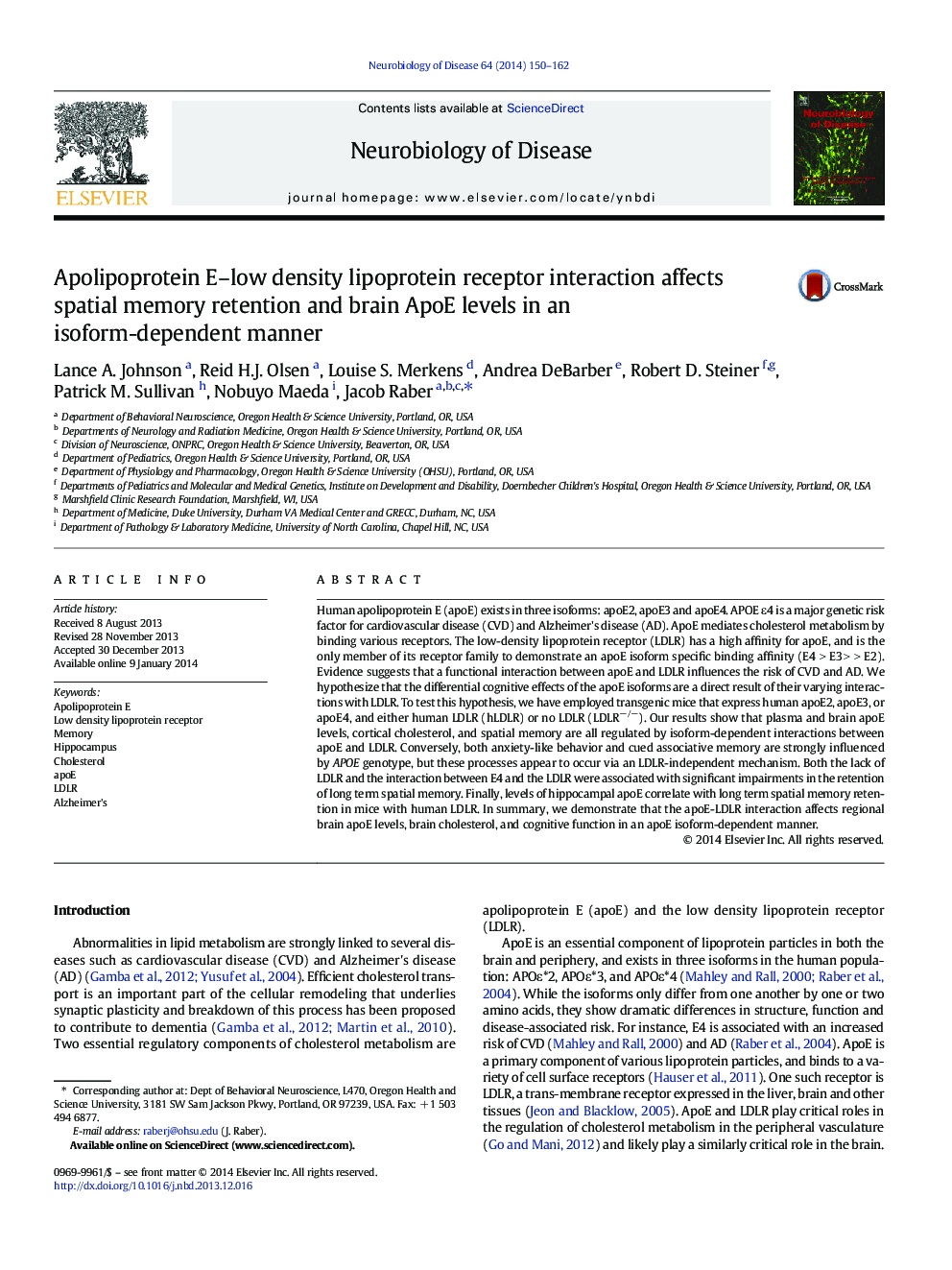| Article ID | Journal | Published Year | Pages | File Type |
|---|---|---|---|---|
| 6021987 | Neurobiology of Disease | 2014 | 13 Pages |
•ApoE isoform-dependent interactions with hLDLR affect plasma and brain apoE levels.•LDLR deficient mice show apoE isoform-independent impairment in spatial memory.•hLDLR mice with E4 have less long-term spatial memory than those with E2 and E3.•In hLDLR mice, hippocampal apoE levels positively correlate with spatial memory.
Human apolipoprotein E (apoE) exists in three isoforms: apoE2, apoE3 and apoE4. APOE ε4 is a major genetic risk factor for cardiovascular disease (CVD) and Alzheimer's disease (AD). ApoE mediates cholesterol metabolism by binding various receptors. The low-density lipoprotein receptor (LDLR) has a high affinity for apoE, and is the only member of its receptor family to demonstrate an apoE isoform specific binding affinity (E4 > E3 > > E2). Evidence suggests that a functional interaction between apoE and LDLR influences the risk of CVD and AD. We hypothesize that the differential cognitive effects of the apoE isoforms are a direct result of their varying interactions with LDLR. To test this hypothesis, we have employed transgenic mice that express human apoE2, apoE3, or apoE4, and either human LDLR (hLDLR) or no LDLR (LDLR−/−). Our results show that plasma and brain apoE levels, cortical cholesterol, and spatial memory are all regulated by isoform-dependent interactions between apoE and LDLR. Conversely, both anxiety-like behavior and cued associative memory are strongly influenced by APOE genotype, but these processes appear to occur via an LDLR-independent mechanism. Both the lack of LDLR and the interaction between E4 and the LDLR were associated with significant impairments in the retention of long term spatial memory. Finally, levels of hippocampal apoE correlate with long term spatial memory retention in mice with human LDLR. In summary, we demonstrate that the apoE-LDLR interaction affects regional brain apoE levels, brain cholesterol, and cognitive function in an apoE isoform-dependent manner.
